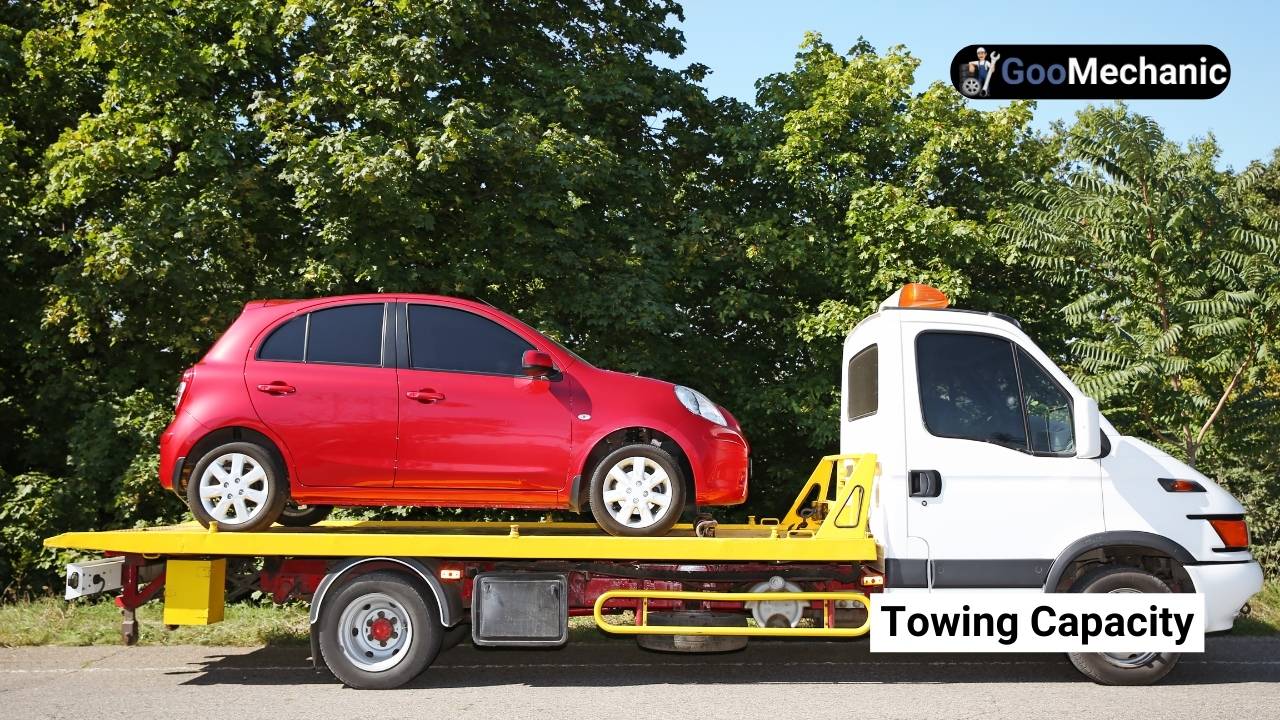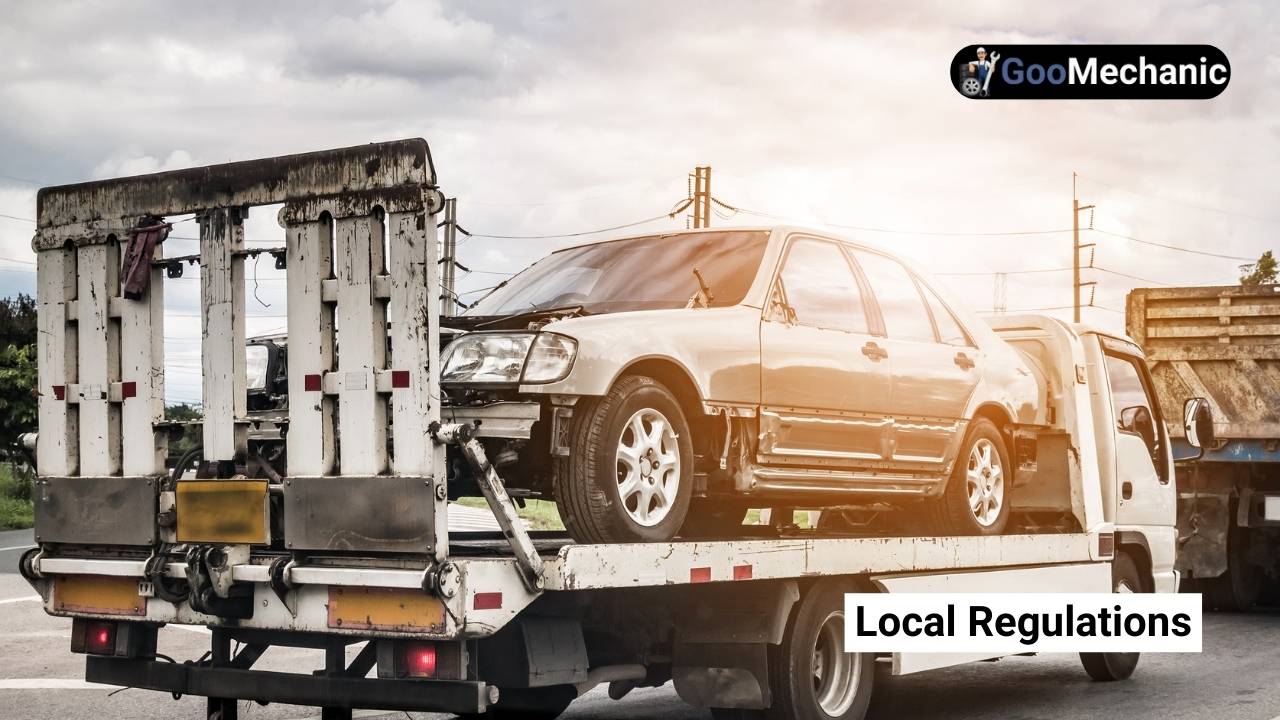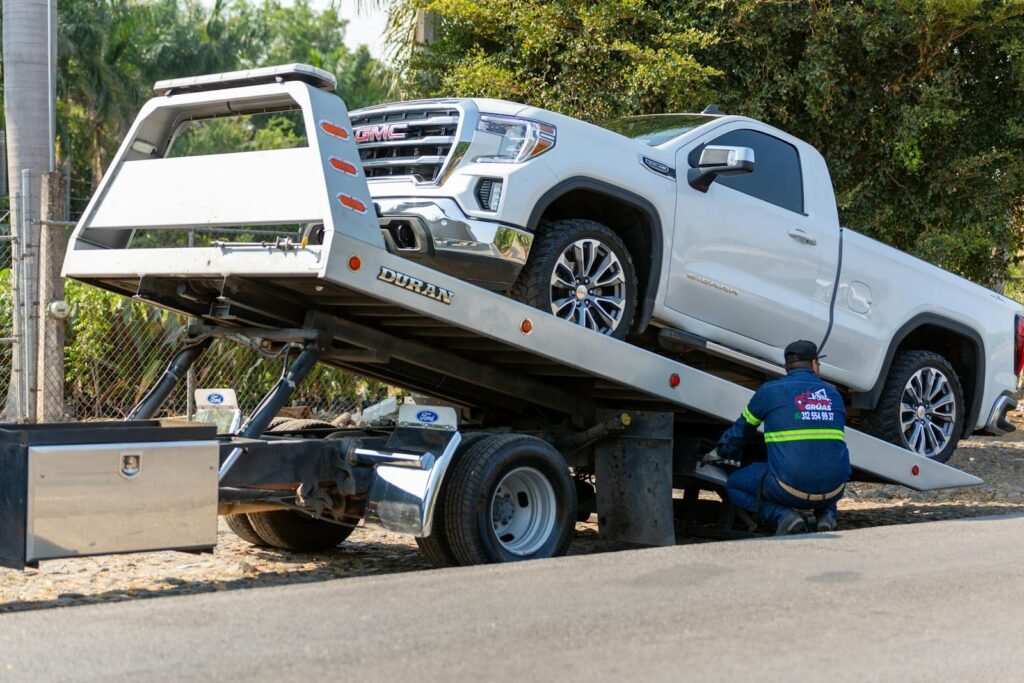To choose the right size tow truck, consider your vehicle’s weight and the type of tow required. Match these factors with the tow truck’s capacity.
Selecting the appropriate tow truck size is crucial for safe and efficient towing. Incorrect sizing can lead to damage or unsafe conditions. First, determine your vehicle’s weight, including any cargo. This helps identify whether you need a light-duty, medium-duty, or heavy-duty tow truck.
Light-duty tow trucks handle small cars, while medium-duty is suitable for vans and SUVs. Heavy-duty tow trucks are necessary for large trucks and machinery. Also, consider the type of tow—flatbed, wheel-lift, or integrated. Each type serves different needs and vehicle conditions. Properly matching your vehicle with the right tow truck ensures a smooth and secure towing experience.
Assessing Vehicle Needs

Choosing the right size tow truck is crucial. You need to ensure that your vehicle’s needs are met. This involves understanding several key factors. Below, we will discuss two important aspects: vehicle weight and type of breakdown.
Vehicle Weight
The weight of your vehicle is a crucial factor. A tow truck must handle your vehicle’s weight. Check your vehicle’s manual for its weight. Light-duty trucks are for cars and small SUVs. Medium-duty trucks can tow larger SUVs and trucks. Heavy-duty trucks are for large vehicles like buses and RVs.
| Type of Tow Truck | Vehicle Weight Range (lbs) |
|---|---|
| Light-Duty | 0 – 10,000 |
| Medium-Duty | 10,001 – 26,000 |
| Heavy-Duty | 26,001 and above |
Type Of Breakdown
The type of breakdown affects your tow truck choice. Engine failures and flat tires need different tow trucks. For a simple flat tire, a wheel-lift tow truck is enough. For engine failures, a flatbed tow truck is better. This ensures safe transportation of your vehicle.
- Flat Tire: Wheel-lift tow truck
- Engine Failure: Flatbed tow truck
- Transmission Issues: Flatbed or integrated tow truck
Types Of Tow Trucks
Choosing the right size tow truck is crucial for your vehicle’s safety. Knowing the different types of tow trucks helps you make an informed decision. Each type has its unique features and uses. Understanding these types ensures you pick the best one for your needs.
Flatbed Trucks
Flatbed trucks are versatile and easy to use. They have a large, flat platform to carry vehicles. These trucks are ideal for transporting cars without risking damage. The vehicle is driven or pulled onto the flatbed. It is then secured for safe transport. Flatbed trucks are great for long-distance towing.
Hook And Chain Trucks
Hook and chain trucks are among the oldest towing methods. They use chains to secure the vehicle. The hook lifts one end of the car off the ground. This type is suitable for scrap cars or wrecked vehicles. It can damage the vehicle if not used carefully. Hook and chain trucks are less common today but still useful in specific situations.
| Type of Tow Truck | Best For | Potential Drawbacks |
|---|---|---|
| Flatbed Trucks | Long-distance towing, damage-free transport | Requires more space, costlier |
| Hook and Chain Trucks | Scrap cars, wrecked vehicles | Can damage the vehicle, less common |
Towing Capacity

Choosing the right size tow truck is crucial. The towing capacity is an essential factor. It ensures your vehicle is towed safely. Towing capacity refers to the maximum weight a tow truck can handle.
Understanding the towing capacity involves different elements. These include the Gross Vehicle Weight Rating and the Maximum Load Capacity.
Gross Vehicle Weight Rating
The Gross Vehicle Weight Rating (GVWR) is the total weight a tow truck can support. This includes the weight of the truck itself plus the cargo. It is important to know your vehicle’s GVWR to choose the right tow truck.
Check your vehicle’s manual for its GVWR. You can also find this information on the door frame sticker. The GVWR helps you understand how much weight your vehicle can carry and tow.
Maximum Load Capacity
The Maximum Load Capacity is the weight limit a tow truck can haul. This includes the weight of your vehicle and any additional cargo. Exceeding this limit can cause damage.
Always ensure the load does not surpass the tow truck’s maximum capacity. This will prevent accidents and ensure safe towing. Knowing your vehicle’s weight and the tow truck’s capacity is vital.
| Factor | Description |
|---|---|
| GVWR | Total weight a tow truck can support, including its own weight and cargo. |
| Maximum Load Capacity | Weight limit a tow truck can haul, including the vehicle and cargo. |
- Check your vehicle’s manual.
- Look for the door frame sticker.
- Match your vehicle’s weight with the tow truck’s capacity.
- Determine your vehicle’s GVWR.
- Find the tow truck’s maximum load capacity.
- Ensure the load does not exceed the capacity.
Truck And Vehicle Compatibility
Choosing the right size tow truck is essential for a safe towing experience. The truck must match your vehicle’s specifications to avoid damage. This section guides you through truck and vehicle compatibility.
Matching Specifications
To ensure truck and vehicle compatibility, check the Gross Vehicle Weight Rating (GVWR). The GVWR indicates the maximum weight the truck can handle. Compare this with your vehicle’s weight. The tow truck should have a higher GVWR than your vehicle.
Towing capacity is another crucial factor. It shows how much weight the truck can pull. Ensure the towing capacity exceeds your vehicle’s weight. This ensures safe and efficient towing.
Use this table to compare specifications:
| Specification | Vehicle | Tow Truck |
|---|---|---|
| GVWR | Check vehicle’s manual | Higher than vehicle |
| Towing Capacity | Check vehicle’s weight | Higher than vehicle’s weight |
Safety Considerations
Safety is crucial when choosing a tow truck. Ensure the truck has a strong braking system. It should handle the extra weight. Check the hitch type. It should be compatible with your vehicle’s hitch.
- Strong braking system
- Compatible hitch type
- Working lights and indicators
Ensure the tow truck’s tires are in good condition. They must handle the weight. Check for any signs of wear and tear.
Inspect the towing equipment. Make sure it is in good condition. This includes chains, hooks, and straps. Good equipment ensures a safe towing experience.
- Check tire condition
- Inspect towing equipment
- Ensure working lights and indicators
Cost Considerations
Choosing the right size tow truck for your vehicle involves several cost considerations. These factors play a crucial role in your decision-making process. Understanding the costs can help you make an informed choice.
Rental Costs
Rental costs vary based on the size of the tow truck. Smaller trucks generally cost less to rent. Larger tow trucks are more expensive. Here’s a breakdown of typical rental costs:
| Truck Size | Daily Rental Cost |
|---|---|
| Small Tow Truck | $100 – $150 |
| Medium Tow Truck | $150 – $200 |
| Large Tow Truck | $200 – $300 |
Consider your budget before renting a tow truck. Make sure the rental fits within your financial plan.
Maintenance Costs
Maintenance costs are another important factor. Larger tow trucks often have higher maintenance costs. This includes regular servicing and unexpected repairs. Here are some common maintenance costs:
- Oil Change: $50 – $100
- Tire Replacement: $100 – $300 per tire
- Brake Service: $150 – $400
- Engine Repairs: $500 – $2000
Regular maintenance helps keep your tow truck in good condition. This can save you money in the long run. Plan for these costs to avoid surprises.
Local Regulations

Understanding local regulations is crucial when choosing the right size tow truck for your vehicle. Local laws dictate what types of tow trucks can operate. They also set weight limits and require specific permits. Below, we will discuss these important aspects under the following headings:
Permits Required
Before operating a tow truck, you need to obtain the necessary permits. Different regions have different rules. Here are some common permits you may need:
- Commercial Driver’s License (CDL)
- Towing License
- Special Equipment Permit
Check with your local authorities to find out which permits apply. Not having the right permits can result in fines and legal issues.
Weight Limits
Every region has its own weight limits for tow trucks. These limits are crucial for safety and legal reasons. Generally, tow trucks are classified based on their Gross Vehicle Weight Rating (GVWR).
| Type of Tow Truck | GVWR |
|---|---|
| Light-Duty | Up to 10,000 lbs |
| Medium-Duty | 10,001 to 26,000 lbs |
| Heavy-Duty | Above 26,000 lbs |
Choose a tow truck that matches the weight of your vehicle. Overloading can lead to accidents and penalties.
Consult local regulations to ensure compliance. This will help you avoid unnecessary complications. Always stay updated on any changes in the law.
Professional Advice
Choosing the right size tow truck can be tricky. Getting professional advice is crucial. Experts can help you make the best choice.
Consulting Experts
Talking to experts is a smart move. They have years of experience. They understand different vehicle needs.
- Check qualifications: Ensure they are certified.
- Ask questions: Clarify all your doubts.
- Get recommendations: Ask for truck size suggestions.
Reading Reviews
Reading reviews can provide valuable insights. You can learn from others’ experiences.
| Review Source | Value |
|---|---|
| Online Forums | Real user experiences |
| Review Websites | Professional opinions |
| Social Media | Quick feedback |
Reviews help you understand the pros and cons. They can guide you in making a good decision.
Emergency Scenarios
Choosing the right size tow truck is crucial in emergency scenarios. The right tow truck ensures your vehicle is safely transported. Let’s explore how to choose the right tow truck during emergencies.
Roadside Assistance
Roadside assistance is often needed for minor vehicle issues. These can include flat tires, battery jump-starts, or running out of fuel. In these cases, a light-duty tow truck is usually sufficient. Light-duty tow trucks can handle cars and small trucks. They are quick and efficient for minor roadside problems.
Light-duty tow trucks have a weight capacity of up to 10,000 lbs. They are equipped with tools for basic repairs and towing. Here is a quick comparison of their features:
| Feature | Light-Duty Tow Truck |
|---|---|
| Weight Capacity | Up to 10,000 lbs |
| Common Uses | Flat tires, battery jump-starts, running out of fuel |
| Vehicle Types | Cars, small trucks |
Accident Recovery
Accidents often require more specialized tow trucks. For severe accidents, a heavy-duty tow truck may be necessary. These trucks can handle larger vehicles and more complicated situations. They are equipped with advanced tools for accident recovery.
Heavy-duty tow trucks have a weight capacity of up to 25,000 lbs or more. They can tow large trucks, buses, and even construction vehicles. Here’s an overview of their capabilities:
- Weight Capacity: Up to 25,000 lbs or more
- Common Uses: Severe accidents, large vehicle recovery
- Vehicle Types: Large trucks, buses, construction vehicles
In both emergency scenarios, the right tow truck ensures the safety of your vehicle. Always consider the type of emergency and vehicle size. This way, you can choose the right tow truck for the job.
Frequently Asked Questions
How To Choose The Right Truck For Towing?
Consider the truck’s towing capacity, engine power, and weight. Check the hitch type and payload rating. Ensure the truck has advanced safety features. Read reviews and consult experts.
How Do I Calculate What My Truck Can Tow?
To calculate your truck’s towing capacity, check the owner’s manual for the Gross Combination Weight Rating (GCWR). Subtract the truck’s curb weight and passenger weight from the GCWR. The result is your truck’s maximum towing capacity.
How Much Tow Capacity Do I Really Need?
Determine your tow capacity by considering your vehicle’s maximum towing rating, trailer weight, and cargo. Always refer to your vehicle’s manual.
How To Match Tow Vehicle To Trailer?
Ensure the tow vehicle’s towing capacity exceeds the trailer’s weight. Check the hitch and tongue weight compatibility. Verify brake systems match.
Conclusion
Choosing the right size tow truck is crucial for safe and efficient towing. Always consider your vehicle’s weight and towing needs. Consult experts if unsure about your choice. A well-suited tow truck prevents damage and ensures a smooth towing experience.
Make informed decisions for optimal vehicle care and safety.

